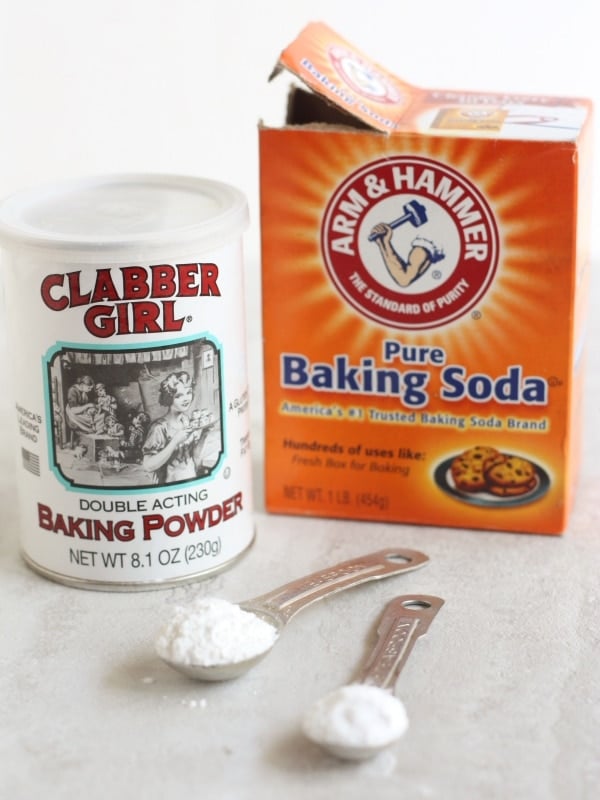Winter is the time of year that I love to bake. With winter holidays, valentines day, Easter and so many other days that I love to make special treats for those that I love. Thru all the years of baking I have learned that it is a sort of scientific magic that helps the ingredients all mix together. Two of the ingredients most commonly used in baking are baking powder and baking soda.
Baking powder and soda are both ingredients that help to reach ideal texture in baked goods. I have often wondered what makes these two ingredients so different and when to know which to use when. What their commonalities are and if they could be used in place of the other. Likewise if these ingredients are truly needed what would happen if I left them out.
The truth is that both baking powder and baking soda are both in the same category known as leaveners in baking but they do not do the same exact job. In addition both baking powder and baking soda are whit in color with a powdery texture with similar names so getting them mixed up is rather easy to do. Leaving out the recipe called for ingredient may leave you with a result that is unflattering.
Baking Powder
Baking Powder is actually baking soda that has been mixed with a dry acid. When baking powder mixes with a liquid it will release carbon dioxide bubbles. These bubbles help make baked goods rise. Most baking powders at the store are known as "double acting" and activate when it is mixed with liquid and again when heated.
Baking Soda
There is no acid added to baking soda so it requires some sort of acid like lemon juice, buttermilk or vinegar to work. It is much stronger than baking powder so it requires less amounts. Using to much baking soda can make food taste metallic or soapy
Recipes can call for both baking powder and soda at the same time. When this happens there is often an acid agent that will help the baking soda react but a bit more of a reaction is needed to provide the deemed push and because to much baking soda can turn the recipe taste some baking powder is used.
In a pinch you can make a substitute for baking powder Simply mix cream of tartar in with the baking soda
1TBSP baking powder = 2 tsp cream of tartar + 1 tsp baking soda
Baking powder or baking soda both have a shelf life that will not last forever. Baking powder will stay good for about 12 months but baking soda will go bad around 6 months. In addition, they both should be kept stored in a cool dry place to stay up to par.
To test baking powder mix 1/2 tsp baking powder in a 1/2 cup hot water stir When testing baking soda mix 1/2 tsp baking soda with 3 Tbsp distilled white vinegar and stir.The mixtures should bubble as soon as they are stirred to make the mixture.
please consider sharing our post
shared at


Interesting. I think I thought they were the same.
ReplyDeleteThis is interesting. I feel like I can always taste baking soda. It’s definitely got a metallic taste to it.
ReplyDeleteWell, I learnt something new today. I thought they were the same thing.
ReplyDelete